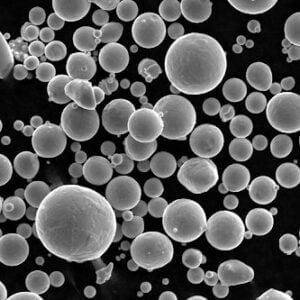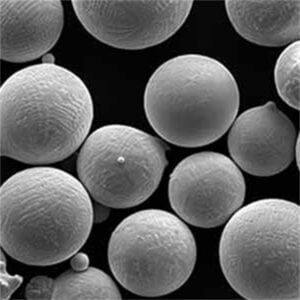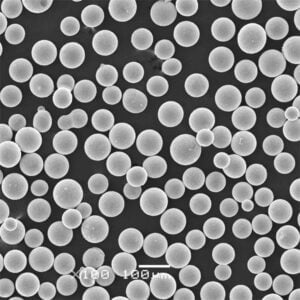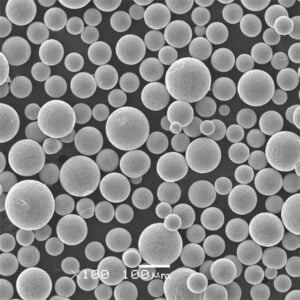When it comes to titanium and titanium alloy bars and billets, ASTM B348 is the standard specification that governs their production and quality. But what exactly is ASTM B348, and why is it crucial in various industries? Let’s dive into the details.
Visión general de ASTM B348
ASTM B348 is a specification that covers several grades of titanium and titanium alloy bars and billets. These materials are widely used in aerospace, medical devices, automotive, and other high-performance industries due to their excellent strength-to-weight ratio, corrosion resistance, and biocompatibility.
Key Details of ASTM B348
- Título: Standard Specification for Titanium and Titanium Alloy Bars and Billets
- Standardizing Body: ASTM International
- Material Types: Pure Titanium and Titanium Alloys
- Aplicaciones: Aerospace, Medical Devices, Automotive, Marine, Chemical Processing
- Propiedades: High Strength, Corrosion Resistance, Low Density, Biocompatibility
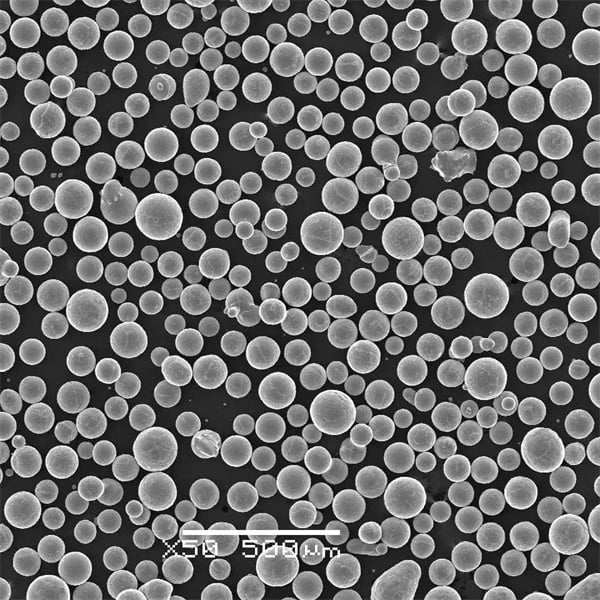
Types of Titanium and Titanium Alloys under ASTM B348
Common Grades and Their Composition
| Grado | Composición | Propiedades | Características |
|---|---|---|---|
| Grado 1 | Pure Titanium (99.5% Ti) | Excellent corrosion resistance, ductility, and formability | Softest and most ductile of all grades |
| Grado 2 | Pure Titanium (99.2% Ti) | Good balance of strength and ductility | Widely used for industrial applications |
| Grado 3 | Pure Titanium (99.1% Ti) | Higher strength than Grade 2, less ductile | Used where higher strength is required |
| Grado 4 | Pure Titanium (99% Ti) | Highest strength among pure grades, lower ductility | Suitable for high-pressure applications |
| 5º curso | Ti-6Al-4V (6% Al, 4% V) | High strength, light weight, corrosion resistance | Most commonly used titanium alloy |
| 7º curso | Ti-0.2Pd (0.2% Pd) | Improved corrosion resistance in reducing and oxidizing environments | Used in chemical processing industries |
| Grado 9 | Ti-3Al-2.5V (3% Al, 2.5% V) | Good strength and formability | Used in aerospace and industrial applications |
| Grado 11 | Ti-0.15Pd (0.15% Pd) | Similar to Grade 1 but with improved corrosion resistance | Utilizado en la industria naval y química |
| Grado 12 | Ti-0.3Mo-0.8Ni (0.3% Mo, 0.8% Ni) | Improved corrosion resistance and strength | Suitable for chemical and marine applications |
| Grado 23 | Ti-6Al-4V ELI (Extra Low Interstitial) | High strength, excellent fracture toughness | Used in medical implants and aerospace |
Propiedades y características de ASTM B348 Materiales
Understanding the properties of these materials is essential for selecting the right grade for your application. Let’s break down the key characteristics:
Propiedades mecánicas
| Propiedad | Grado 1 | Grado 2 | Grado 3 | Grado 4 | 5º curso | 7º curso | Grado 9 | Grado 11 | Grado 12 | Grado 23 |
|---|---|---|---|---|---|---|---|---|---|---|
| Resistencia a la tracción (MPa) | 240 | 345 | 450 | 550 | 895 | 345 | 620 | 240 | 483 | 860 |
| Límite elástico (MPa) | 170 | 275 | 380 | 485 | 825 | 275 | 483 | 170 | 380 | 795 |
| Alargamiento (%) | 24 | 20 | 18 | 15 | 10 | 20 | 15 | 24 | 18 | 10 |
Propiedades físicas
| Propiedad | Grado 1 | Grado 2 | Grado 3 | Grado 4 | 5º curso | 7º curso | Grado 9 | Grado 11 | Grado 12 | Grado 23 |
|---|---|---|---|---|---|---|---|---|---|---|
| Densidad (g/cm³) | 4.51 | 4.51 | 4.51 | 4.51 | 4.43 | 4.51 | 4.48 | 4.51 | 4.54 | 4.43 |
| Punto de fusión (°C) | 1668 | 1668 | 1668 | 1668 | 1604 | 1668 | 1638 | 1668 | 1650 | 1604 |
| Módulo de elasticidad (GPa) | 105 | 105 | 105 | 105 | 110 | 105 | 103 | 105 | 106 | 110 |
Applications of ASTM B348 Materials
Given their excellent properties, ASTM B348 materials find use in various demanding applications.
Aplicaciones industriales
| Industria | Aplicaciones | Preferred Grades |
|---|---|---|
| Aeroespacial | Aircraft components, fasteners, landing gears | Grade 5, Grade 9, Grade 23 |
| Médico | Surgical implants, dental implants, prosthetics | Grado 23, Grado 5 |
| Automoción | Engine components, exhaust systems, connecting rods | Grade 5, Grade 9 |
| Marina | Shipbuilding, offshore structures, desalination plants | Grade 2, Grade 12, Grade 11 |
| Procesado químico | Heat exchangers, reaction vessels, piping | Grade 2, Grade 7, Grade 12 |
Tabla de aplicaciones
| Aplicación | Descripción | Recommended Grades |
|---|---|---|
| Componentes aeroespaciales | High-strength, lightweight parts for aircraft and spacecraft | Grade 5, Grade 9, Grade 23 |
| Productos sanitarios | Biocompatible implants and surgical tools | Grado 23, Grado 5 |
| Piezas de automóviles | Lightweight, durable engine and exhaust components | Grade 5, Grade 9 |
| Equipamiento marino | Corrosion-resistant parts for marine environments | Grade 2, Grade 12, Grade 11 |
| Procesado químico | Equipment for handling corrosive substances | Grade 2, Grade 7, Grade 12 |
Especificaciones, tamaños y normas
Understanding the specifications and sizes available for ASTM B348 materials is crucial for proper selection and application.
Tabla de especificaciones
| Grado | Diameter Range (mm) | Length Range (mm) | Normas |
|---|---|---|---|
| Grado 1 | 6.35 – 152.4 | 300 – 6000 | ASTM B348, ASME SB-348 |
| Grado 2 | 6.35 – 152.4 | 300 – 6000 | ASTM B348, ASME SB-348 |
| Grado 3 | 6.35 – 152.4 | 300 – 6000 | ASTM B348, ASME SB-348 |
| Grado 4 | 6.35 – 152.4 | 300 – 6000 | ASTM B348, ASME SB-348 |
| 5º curso | 6.35 – 203.2 | 300 – 6000 | ASTM B348, AMS 4928, MIL-T-9047 |
| 7º curso | 6.35 – 152.4 | 300 – 6000 | ASTM B348, ASME SB-348 |
| Grado 9 | 6.35 – 152.4 | 300 – 6000 | ASTM B348, AMS 4928 |
| Grado 11 | 6.35 – 152.4 | 300 – 6000 | ASTM B348, ASME SB-348 |
| Grado 12 | 6.35 – 152.4 | 300 – 6000 | ASTM B348, ASME SB-348 |
| Grado 23 | 6.35 – 203.2 | 300 – 6000 | ASTM B348, AMS 4930 |
Proveedores y precios
The availability and cost of ASTM B348 materials can vary based on the supplier, grade, and quantity.
Tabla de proveedores
| Proveedor | Grade Availability | Gama de precios (por kg) | Ubicación |
|---|---|---|---|
| Titanium Metals Corp | Grade 1, 2, 5, 7, 23 | $50 – $200 | EE.UU. |
| Baoji Titanium Co. | Grade 1, 2, 3, 4, 5, 9 | $40 – $180 | China |
| Calendario | Grade 1, 2, 3, 4, 5, 23 | $55 – $210 | Estados Unidos, Europa |
| VSMPO-AVISMA | Grade 1, 2, 5, 9, 23 | $45 – $190 | Rusia |
| Western Superconducting | Grade 1, 2, 3, 5, 7, 12 | $50 – $195 | China |
Comparación de pros y contras de ASTM B348 Grados
Selecting the right titanium grade requires weighing the advantages and disadvantages of each option.
Cuadro comparativo
| Grado | Ventajas | Desventajas |
|---|---|---|
| Grado 1 | Excellent corrosion resistance, high ductility | Lower strength compared to other grades |
| Grado 2 | Good balance of strength and ductility | Slightly less corrosion resistant than Grade 1 |
| Grado 3 | Higher strength than Grade 2 | Menos dúctil |
| Grado 4 | Highest strength among pure grades | Least ductile among pure grades |
| 5º curso | High strength, corrosion resistance, widely available | More expensive, harder to machine |
| 7º curso | Excellent corrosion resistance in specific environments | Limited to niche applications |
| Grado 9 | Good formability, moderate strength | Limited availability compared to Grade 5 |
| Grado 11 | Similar to Grade 1 with better corrosion resistance | Menor resistencia |
| Grado 12 | Good corrosion resistance and strength | Más caro |
| Grado 23 | High strength, excellent for medical applications | Very expensive, limited to high-performance applications |

PREGUNTAS FRECUENTES
| Pregunta | Respuesta |
|---|---|
| ¿Qué es la norma ASTM B348? | ASTM B348 is a standard specification for titanium and titanium alloy bars and billets. |
| Why is titanium used in aerospace? | Titanium is used in aerospace due to its high strength-to-weight ratio and excellent corrosion resistance. |
| Which grade of titanium is best for medical implants? | Grade 23 (Ti-6Al-4V ELI) is preferred for medical implants due to its biocompatibility and high strength. |
| How does Grade 5 titanium compare to Grade 2? | Grade 5 has higher strength and is used in more demanding applications, while Grade 2 offers a good balance of properties at a lower cost. |
| What industries use ASTM B348 materials? | Industries such as aerospace, medical, automotive, marine, and chemical processing use ASTM B348 materials. |
| How are titanium bars and billets produced? | They are typically produced through processes such as melting, forging, and rolling, followed by heat treatment and machining. |
| What makes titanium corrosion resistant? | Titanium forms a passive oxide layer on its surface that protects it from corrosion. |
| Can titanium be welded? | Yes, titanium can be welded, but it requires specific techniques and equipment to avoid contamination and ensure strong welds. |
| What is the difference between Grade 5 and Grade 23 titanium? | Grade 23 is an extra low interstitial version of Grade 5, offering improved ductility and fracture toughness for medical applications. |
| Where can I buy ASTM B348 titanium? | ASTM B348 titanium can be purchased from various suppliers like Titanium Metals Corp, Baoji Titanium Co., and Timet. |
Conclusión
ASTM B348 sets the standard for titanium and titanium alloy bars and billets, ensuring high quality and reliability for various applications. Whether you’re in aerospace, medical, automotive, or chemical processing, understanding the different grades and their properties can help you choose the right material for your needs. With its unique combination of strength, corrosion resistance, and biocompatibility, titanium remains a critical material in advanced engineering and manufacturing.
By following these guidelines, this article aims to provide a comprehensive, SEO-optimized resource on ASTM B348, engaging readers with detailed information, practical insights, and a conversational tone.





